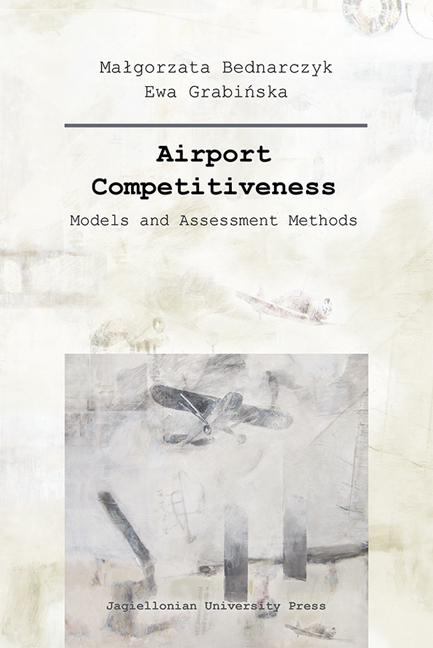Book contents
- Frontmatter
- Contents
- List of Common Abbreviations
- Dedication
- Introduction
- 1 The Essence of Air Transport and its Socio-Economic Role
- 2 Significance of Competitiveness in Air Transportation
- 3 Foundations for Assessing Competitiveness of an Airport
- 4 External and Internal Determinants of Regional Airport Competitiveness
- 5 Competitiveness Model of a Regional Airport
- Conclusions
- List of Tables and Figures, Drawings and Graphs
- Literature
- Appendix
- List of Graphs and Tables in the Appendix
Introduction
Published online by Cambridge University Press: 10 January 2018
- Frontmatter
- Contents
- List of Common Abbreviations
- Dedication
- Introduction
- 1 The Essence of Air Transport and its Socio-Economic Role
- 2 Significance of Competitiveness in Air Transportation
- 3 Foundations for Assessing Competitiveness of an Airport
- 4 External and Internal Determinants of Regional Airport Competitiveness
- 5 Competitiveness Model of a Regional Airport
- Conclusions
- List of Tables and Figures, Drawings and Graphs
- Literature
- Appendix
- List of Graphs and Tables in the Appendix
Summary
Interpersonal contacts are one of the most essential values of the modern world. Despite the development of a variety of different forms of communication, a strong need for personal contact still remains. Hence the need for movement and travel. Air transport, as one of the areas of the economy, has been experiencing rapid development for many years now. One of the reasons for that is that this type of transport enables us to reach any point on Earth relatively quickly, conveniently and safely. Nevertheless, aviation shall not progress without sufficient infrastructure and its growth is therefore strictly related to the appearance of new airports and the development of existing ones.
The development of airports must be considered from the point of view of different entities (e.g. central authorities, regional governments, entrepreneurs, beneficiaries and citizens.) Furthermore one must not forget different groups of influencing factors (legal, institutional and environmental ones). Also, to maintain a variety of different views, it is vital for us to look at regional, national and international levels of reference.
As a result of the great impact of global economic trends (such as globalisation, liberalisation and deregulation) on the air transport market, the growth of airports is extremely dynamic and difficult to forecast. New technologies emerge, economic conditions change rapidly, and the awareness of environmental protection is now greater than ever. All these changes are taking place in times of great competition, as well as within certain financial constraints. Therefore, exploration of competitiveness is vital for all: the airport's owners and its management team. Competitiveness, at the same time, constitutes an interesting field of study and is a traditional area of activity of the world's greatest business consultancies.
The study of competitiveness is moreover vitally important for Polish regional airports, which, for historical reasons, have only started to develop in the last 20 years, and are currently beginning to strengthen their position on the aviation services market. It is crucial for regional airports to be able to face new challenges. Along with new opportunities, risk factors must also be taken into account. Poland's accession to the Organization for Economic Co-operation and Development (OECD), the European Union and the Schengen Area, as well as other processes within the recent years, have had a great impact on the Polish aviation transport sector, which became an integral part of the European system.
- Type
- Chapter
- Information
- Airport CompetitivnessModels and Assessment Methods, pp. 13 - 16Publisher: Jagiellonian University PressPrint publication year: 2015



